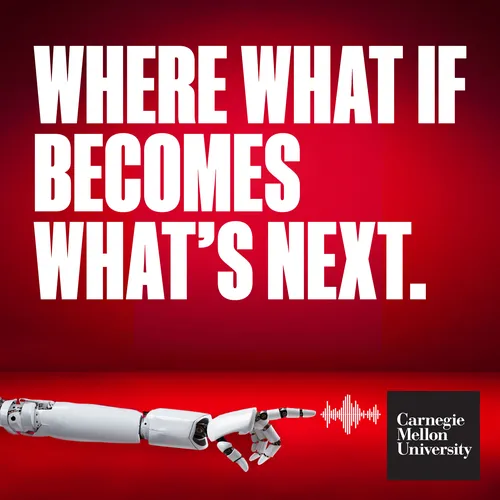Farm to Future: How Robotics and AI are Revolutionizing Agriculture
- Author
- Carnegie Mellon University
- Published
- Wed 27 Aug 2025
- Episode Link
- https://podcasters.spotify.com/pod/show/burstmarketing/episodes/Farm-to-Future-How-Robotics-and-AI-are-Revolutionizing-Agriculture-e37dhmo
What if robots could pick apples without bruising them, detect diseases in tomatoes before farmers can see them, or even help prevent catastrophic wildfires?
In this episode, host Randy Scott speaks with Professor George Kantor from Carnegie Mellon University's Robotics Institute. Professor Kantor’s two decades of pioneering work in agricultural robotics are shaping the future of food and sustainability.
As the global population races toward 10 billion by 2050, robotics and AI may be key to feeding the world while protecting the planet. Professor Kantor shares breakthroughs in robotic harvesters, disease-detecting drones and robots and AI-driven "digital twins" that simulate and optimize farm operations. He also explains how robots are optimizing specialty crops, balancing labor shortages, and reducing reliance on pesticides and fertilizers with real-time monitoring of nitrogen—all while lowering the negative impact of agriculture on the environment. He explains how robots and drones are helping to prevent wildfires in the Safe Forest program by mapping and then clearing potentially flammable vegetation.
Building on last July's Season One discussion about teaching robots to pick apples, Professor Kantor shares new "learning from demonstration" methods where robots learn by analyzing videos of humans performing complex tasks.
The conversation extends beyond the farm to CMU's new Robotics Innovation Center at Hazelwood Green in Pittsburgh, which will be a world-class testing facility for next-generation robots. He also discusses the Girls of Steel Robotics program, which he co-founded 15 years ago and runs through CMU—a K-12 initiative giving students of all genders and ages hands-on robot-building experiences. The program will soon move to the new facility.
From apple orchards to tomato greenhouses to wildfire prevention, discover how robotics is becoming agriculture's most essential tool and a source of hope for a resilient and sustainable future for farming.
